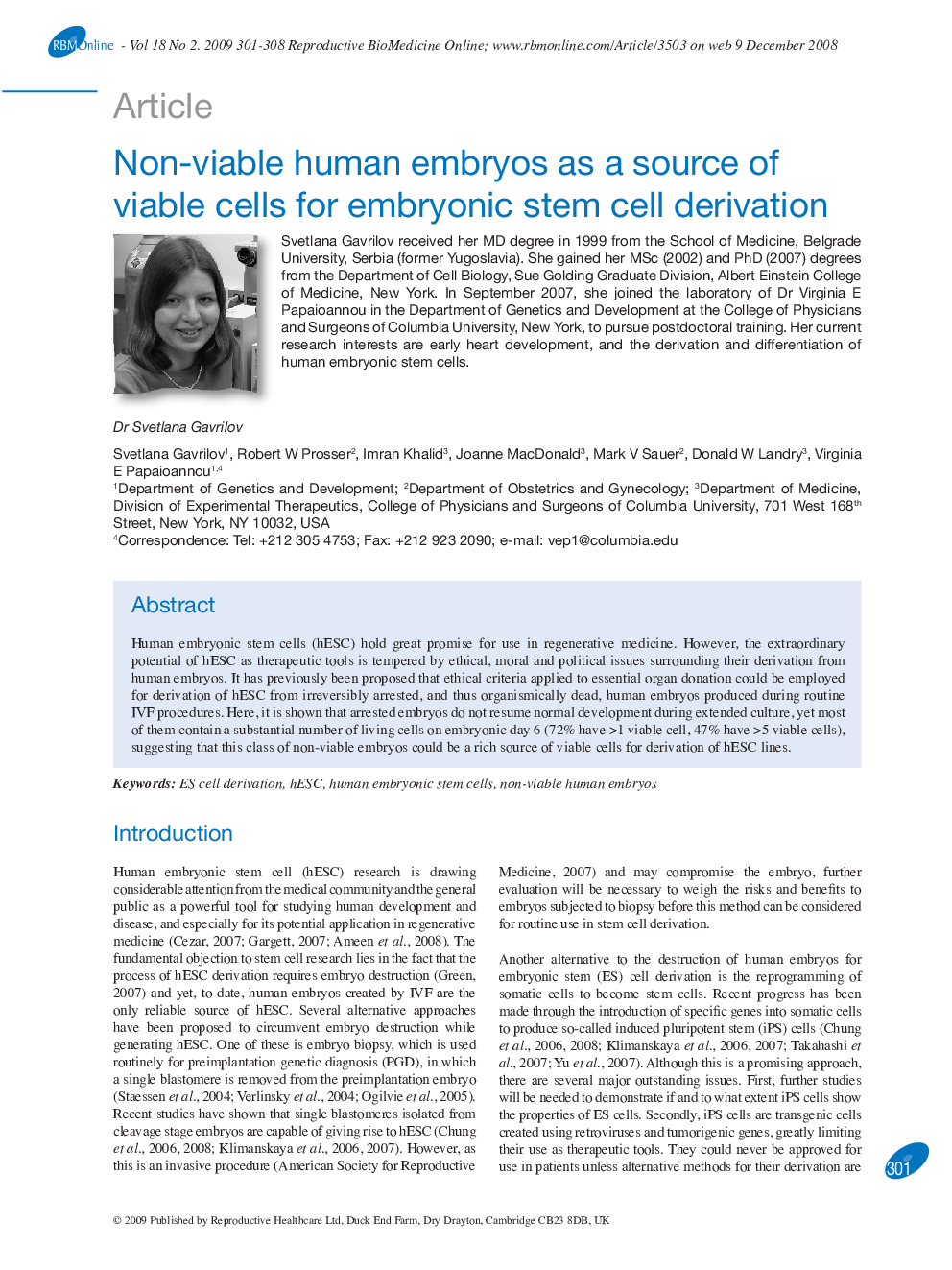| Article ID | Journal | Published Year | Pages | File Type |
|---|---|---|---|---|
| 3972213 | Reproductive BioMedicine Online | 2009 | 8 Pages |
Human embryonic stem cells (hESC) hold great promise for use in regenerative medicine. However, the extraordinary potential of hESC as therapeutic tools is tempered by ethical, moral and political issues surrounding their derivation from human embryos. It has previously been proposed that ethical criteria applied to essential organ donation could be employed for derivation of hESC from irreversibly arrested, and thus organismically dead, human embryos produced during routine IVF procedures. Here, it is shown that arrested embryos do not resume normal development during extended culture, yet most of them contain a substantial number of living cells on embryonic day 6 (72% have >1 viable cell, 47% have >5 viable cells), suggesting that this class of non-viable embryos could be a rich source of viable cells for derivation of hESC lines.
